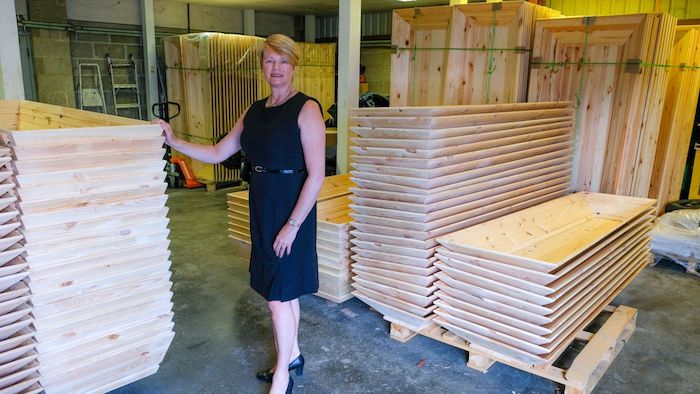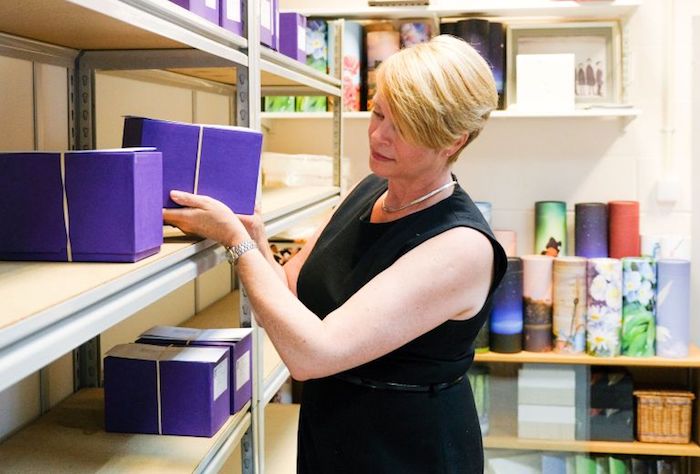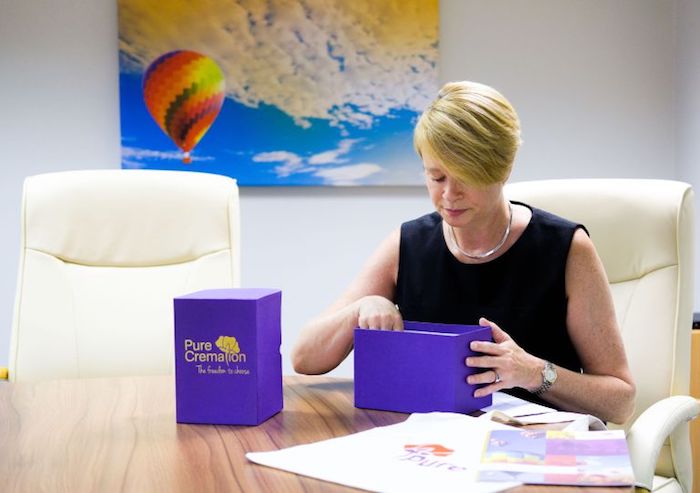Working in cremations has taught me how important it is to make the most of life

By Catherine Powell
I usually get one of two reactions to my work as a cremation provider – either total fascination or a horrified escape to the other side of a room.
There’s a lot of misunderstanding about funeral work, but it’s really all about people.
My husband and co-founder of Pure Cremation has been in funeral service for over 30 years, and I became a funeral arranger then a funeral director thanks to him.
Some do find it shocking that, as a woman, I have personally collected the deceased but, in reality, my job gives me the opportunity to make a real difference to people at a crucial moment in their lives, and even to delight them.
While many people are quite squeamish about the idea of the job, I assure you the jokes are worse.
When you get into the industry, I think you need to be prepared to hear, ‘That’s a dying trade isn’t it?’ or ‘You’ll never go out of business!’ – but it’s all part of the job.
We give simple, dignified care to the person who has died, including collecting them from their place of death and getting them to the crematorium, where they will have an unattended cremation.
Compared to traditional funerals, there are a few key differences with the type of cremation we do.
We never embalm the deceased – it isn’t necessary because of temperature controlled facilities.
We also use a metal detector wand to quickly check for any implants that the family, and even doctors, are unaware of – several types can be hazardous during cremation. For example, pacemakers explode violently and so need to be removed before cremation.
Understandably, human cremation is very tightly regulated, with each person cremated individually, and the handling of the ashes is strictly monitored to avoid mix-ups.
To make sure there are no mistakes, everyone we look after gets a wristband with a unique identifying code that’s also displayed on the coffin lid, any jewellery bag and the ashes container.
Once checked and identified, each person is gently placed, just as they are, into an eco-coffin, which is made from natural, untreated pine, and is much more dignified than the typical mortuary tray where the body is exposed.
When all the paperwork is complete, the coffin is taken to a licensed crematorium.
The vast majority of our families don’t attend the committal at all, but a few do.
On these occasions, there can be just a handful of people in the room, which can be very moving indeed, and I consider it a real privilege to be a witness to these goodbyes.
Some of them are very emotional, particularly if the deceased is young or the circumstances of the death were tragic, but I’ve seen laughter and gratitude as well as tears.
Once the coffin is transferred into the crematory – a superheated furnace with space for just one body – the cremation itself can take up to 2 hours to complete.
Afterwards, any metal parts such as as surgical pins and joints are removed, and the remains are processed to a fine powder to make the ashes that people are familiar with.
The final stage of our care is the hand delivery of the ashes to the family, so that they can be laid to rest somewhere special, and there’s often a memorial service with the ashes instead of the coffin as the focal point.
Cremation actually allows people to better celebrate someone’s true personality separately and the send offs can be very unique, like burning arrows and Viking costumes.
There are two particularly surprising and lovely things that I remember.
The first was watching two daughters dance and play air guitar to Spirit In The Sky in the crematorium chapel as they said a private goodbye to their dad.
I was also able to give a terminally ill lady some joy, just by agreeing to include the ashes caskets of her beloved dogs in her coffin. Sadly, she passed a few weeks later.
It is moments like these that you see how people respond to a tragic event, and this is uplifting and inspiring in equal measure. These instances make me love my job.
I see my job as looking after the living, through excellent and compassionate care of the dead.
We’re here to support families through a traumatic event, and we see first-hand the extra worry that comes from having no idea what their relative wanted.
I’ve always believed that talking about our own end and arranging our own funerals makes a positive difference when it matters most. And it can be a really liberating experience!
This job certainly teaches you about life and how important it is to make the most of it. I’ve also learned what a difference it makes to leave a few clear instructions for your funeral, so your family can feel they ‘got it right’.
The families we look after are doing exactly what mum or dad asked for: a no-fuss, low cost funeral that leaves more to spend on the celebration of life, or to a good cause.
While a qualification isn’t necessary in the UK for a job like ours, great attention to detail, superb listening skills, and problem solving – whether practical or emotional – are essential.
Pay-wise, our drivers get a basic salary of more than £18,000 and lots of overtime on top!
The administration team salaries start at around £24,000, both are considerably higher than traditional funeral firms, where the starting salaries for a funeral arranger can vary between £15K to £19K.
Admittedly, direct cremation is not for everyone.
However, we do make a real difference, offering a liberating alternative that’s perfect for anyone who doesn’t want a traditional funeral.
Complete Article ↪HERE↩!


